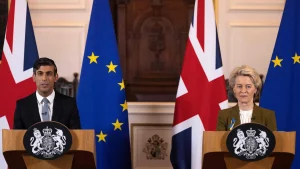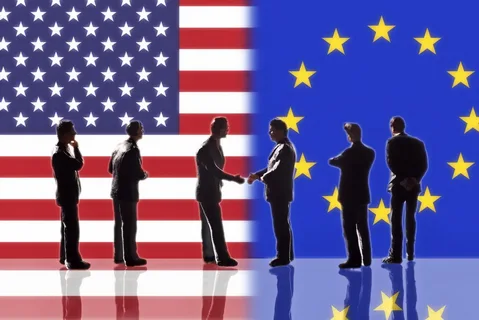The relationship between the United States and the European Union has long been a cornerstone of global diplomacy, economic collaboration, and security. In recent years, this transatlantic partnership has seen significant developments, influenced by political changes, economic challenges, and global crises. This article delves into the most recent developments in US-EU relations, highlighting key areas such as trade, defense, climate change, and diplomatic engagements.
Trade and Economic Cooperation

Trade has always been a pivotal aspect of US-EU relations. The two economies are deeply intertwined, with the EU being one of the largest trading partners of the United States. In recent months, there has been a renewed focus on strengthening economic ties. The Biden administration has made efforts to resolve longstanding trade disputes, such as those involving tariffs on steel and aluminum. In October 2021, both sides reached an agreement to ease tariffs, marking a significant step towards rebuilding trust and cooperation.
Furthermore, the US and the EU have been working on addressing issues related to digital trade and technology. The establishment of the US-EU Trade and Technology Council (TTC) in June 2021 is a testament to this commitment. The TTC aims to coordinate approaches to key global technology, economic, and trade issues, ensuring that both parties can effectively compete in the global digital economy.
Defense and Security
Defense and security remain critical components of US-EU relations. The transatlantic alliance, primarily through NATO, has been the bedrock of mutual defense commitments. Recent developments have seen both sides reaffirming their commitment to NATO, especially in light of emerging global threats. The US has reiterated its support for NATO’s collective defense principle, while the EU has been working on enhancing its own defense capabilities through initiatives like the European Defense Fund.
The withdrawal of US troops from Afghanistan in August 2021 also had significant implications for US-EU relations. It prompted discussions on the need for greater European strategic autonomy in defense matters. While the US and the EU continue to collaborate closely on security issues, there is a growing recognition within the EU of the need to bolster its own defense capabilities.
Climate Change and Environmental Policies
Climate change has emerged as a pivotal area of cooperation between the US and the EU. Both sides have shown a strong commitment to addressing global environmental challenges. The re-entry of the United States into the Paris Agreement under the Biden administration has been a significant development, aligning the US with the EU’s ambitious climate goals.
In April 2021, the US and the EU launched the Global Methane Pledge, aiming to reduce global methane emissions by 30% by 2030. This initiative underscores the shared commitment to tackling climate change and promoting sustainable development. Additionally, both parties have been working on aligning their policies to achieve net-zero emissions by mid-century, with a focus on transitioning to renewable energy sources and promoting green technologies.
Diplomatic Engagements and Multilateralism

Diplomatic engagements between the US and the EU have seen a resurgence, with both sides emphasizing the importance of multilateralism. The Biden administration has sought to restore and strengthen alliances that were strained during the previous administration. High-level meetings, such as the US-EU Summit in June 2021, have been instrumental in reaffirming the transatlantic partnership.
The US and the EU have also been collaborating on addressing global challenges such as the COVID-19 pandemic. Joint efforts to ensure equitable vaccine distribution, support for the COVAX initiative, and commitments to global health security have been key areas of cooperation. These efforts highlight the shared values and common goals that underpin US-EU relations.
Challenges and Future Prospects
Despite the positive developments, challenges remain in US-EU relations. Differences in regulatory approaches, particularly in areas such as data privacy and digital taxation, continue to pose challenges. The EU’s General Data Protection Regulation (GDPR) and the US approach to data privacy have led to ongoing negotiations to find common ground.
Moreover, geopolitical tensions, such as those involving China and Russia, require careful navigation. The US and the EU have been working to coordinate their approaches to these challenges, balancing the need for strategic competition with the imperative of maintaining global stability.
Looking ahead, the future of US-EU relations will likely be shaped by how both sides address these challenges and capitalize on opportunities for cooperation. The commitment to shared values, democratic principles, and the rule of law will continue to be the foundation of this partnership.
Conclusion
In conclusion, recent developments in US-EU relations reflect a renewed commitment to cooperation and collaboration. From trade and economic ties to defense and security, climate change, and diplomatic engagements, the transatlantic partnership remains robust and dynamic. While challenges persist, the shared values and common goals of the US and the EU provide a strong basis for addressing global issues and promoting a stable and prosperous world order. As both sides continue to navigate the complexities of the 21st century, the US-EU relationship will remain a crucial pillar of international relations.




